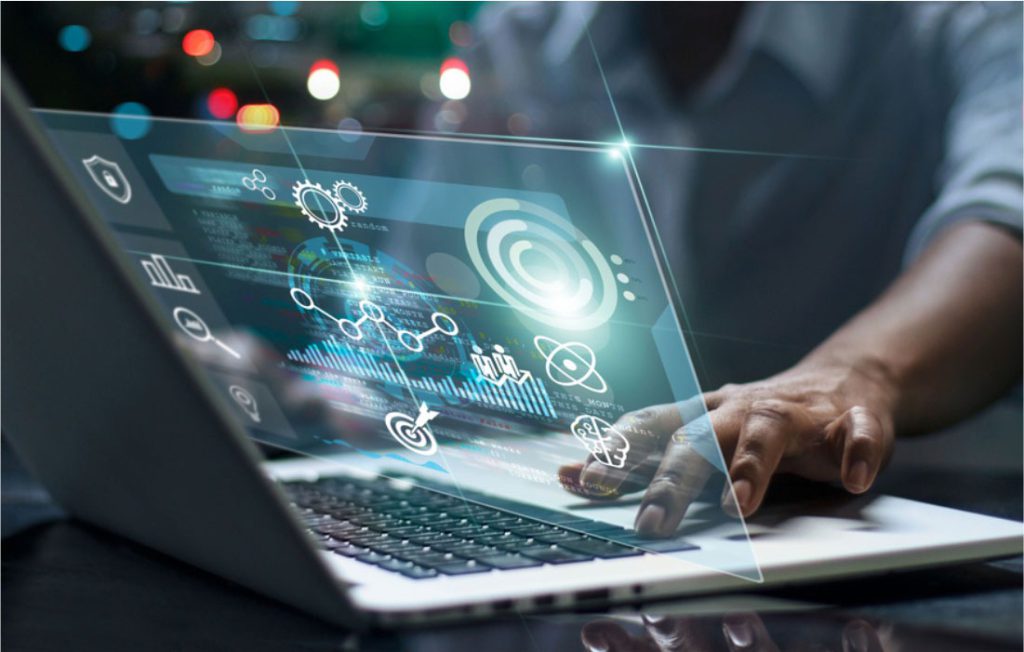Introduction
Have you ever wondered how a computer actually works? 🤔 When you turn it on, open an app, or browse the internet, a complex system of components works together to process information at lightning speed. 🚀
At the heart of this system are three essential components:
✅ CPU (Central Processing Unit) – The brain of the computer 🧠
✅ RAM (Random Access Memory) – The short-term memory 🔄
✅ Storage (HDD/SSD) – The long-term memory 📂
In this guide, we’ll break down how these three components work together to make your computer function smoothly. Let’s dive in! 🎯
1. The CPU: The Brain of the Computer 🧠
🔹 What is the CPU?
The Central Processing Unit (CPU) is the brain of your computer. It executes instructions, processes data, and handles tasks. Every click, keypress, or command goes through the CPU.
🔹 How Does the CPU Work?
✅ Fetch – Retrieves instructions from RAM.
✅ Decode – Understands what needs to be done.
✅ Execute – Performs calculations and actions.
💡 Example: When you press “Enter” in a Word document, the CPU fetches your keystroke, processes it, and displays the result instantly.
🔹 What Affects CPU Performance?
🔹 Clock Speed (GHz) – Measures how fast a CPU executes instructions. Higher GHz = Faster processing.
🔹 Cores & Threads – More cores = Better multitasking. A quad-core CPU can handle multiple tasks at once!
🔹 Cache Memory – Super-fast memory built into the CPU for quick data access.
🔹 Popular CPUs:
✅ Intel Core i5, i7, i9
✅ AMD Ryzen 5, 7, 9
✅ Apple M1 & M2 Chips
💡 Fun Fact: Modern CPUs can perform over 100 billion operations per second! 🚀
2. RAM: The Short-Term Memory 🔄
🔹 What is RAM?
RAM (Random Access Memory) is your computer’s temporary working memory. It stores data that the CPU needs right now, making processes fast and efficient.
🔹 How Does RAM Work?
✅ When you open a program, it loads from storage (HDD/SSD) into RAM.
✅ The CPU processes the data in RAM much faster than from storage.
✅ When you close a program, RAM clears the data to make space for new tasks.
💡 Example: When you open Google Chrome, the program loads into RAM. If you open 20 tabs, you use more RAM, making your system slower.
🔹 How Much RAM Do You Need?
🔹 4GB – Basic tasks (browsing, emails).
🔹 8GB – Everyday use (multitasking, office work).
🔹 16GB – Gaming, video editing, programming.
🔹 32GB+ – Heavy-duty tasks (3D rendering, AI, servers).
💡 Fun Fact: If you run out of RAM, your computer slows down by using storage as “virtual RAM” (swap memory).
3. Storage: The Long-Term Memory 📂
🔹 What is Computer Storage?
Storage is where your computer keeps all its files, programs, and the operating system—even when it’s turned off.
There are two main types of storage:
🔹 1. HDD (Hard Disk Drive) 🏛️
✅ Old-school spinning disks that store data magnetically.
✅ Larger capacity for a lower price (1TB+ storage).
✅ Slower than SSDs due to moving parts.
💡 Best For: Budget laptops, large file storage.
🔹 2. SSD (Solid-State Drive) ⚡
✅ Super fast! Uses flash memory (like USB drives).
✅ No moving parts, making it quieter & more durable.
✅ Boots Windows & loads apps much faster.
💡 Best For: Gaming, video editing, fast performance.
🔹 SSD vs. HDD Speed Comparison:
- HDD boots Windows in ~30-60 seconds.
- SSD boots Windows in ~5-10 seconds.
- SSDs are up to 10x faster than HDDs! 🚀
4. How CPU, RAM, and Storage Work Together 🔄
When you open an application, here’s what happens:
1️⃣ The CPU fetches program data from storage (SSD/HDD).
2️⃣ The data is loaded into RAM for fast access.
3️⃣ The CPU processes the data and displays it on the screen.
💡 Example:
- Typing in Word: The CPU processes your keystrokes, RAM stores temporary data, and storage saves the file.
- Gaming: The CPU processes actions, RAM stores game assets, and the SSD loads new levels quickly.
🚀 Fast CPU + More RAM + SSD = Ultra-smooth performance!
5. Why Your Computer May Be Slow (And How to Fix It) 🐢➡️🚀
🔹 Common Causes of a Slow Computer:
❌ Not enough RAM (Too many open programs).
❌ Old CPU (Struggles with modern apps).
❌ Slow HDD instead of SSD.
❌ Too many background programs running.
🔹 Quick Fixes to Speed Up Your Computer:
✅ Upgrade to an SSD – The biggest speed boost!
✅ Increase RAM – Add more memory for multitasking.
✅ Close unnecessary apps – Free up CPU & RAM.
✅ Disable startup programs – Stop apps from running at boot.
💡 Tip: Use Task Manager (Ctrl + Shift + Esc) to check CPU, RAM, and disk usage.
Conclusion 🏁
Now you understand how a computer works and how CPU, RAM, and storage work together to run programs smoothly! 🎉
Quick Recap:
✅ CPU – The brain 🧠 (Processes instructions).
✅ RAM – The short-term memory 🔄 (Holds active tasks).
✅ Storage (SSD/HDD) – The long-term memory 📂 (Saves files & programs).
🚀 Want a faster computer? Upgrade your SSD, RAM, or CPU!
🔹 Thinking of building or upgrading a PC? Now you know exactly what to look for! 💻⚙️


